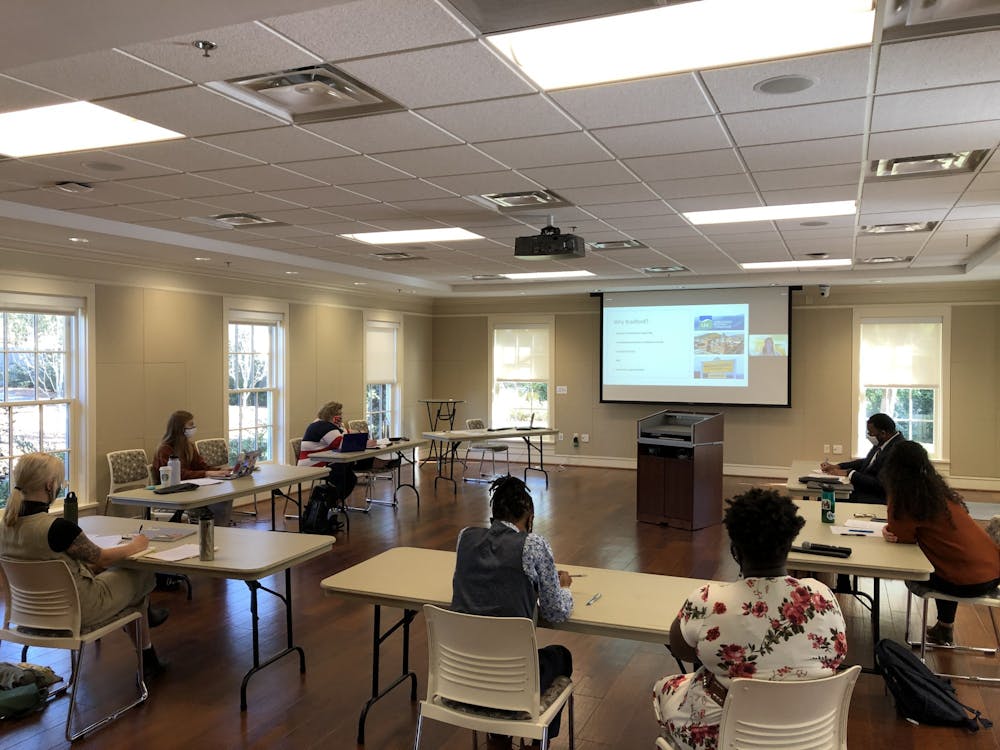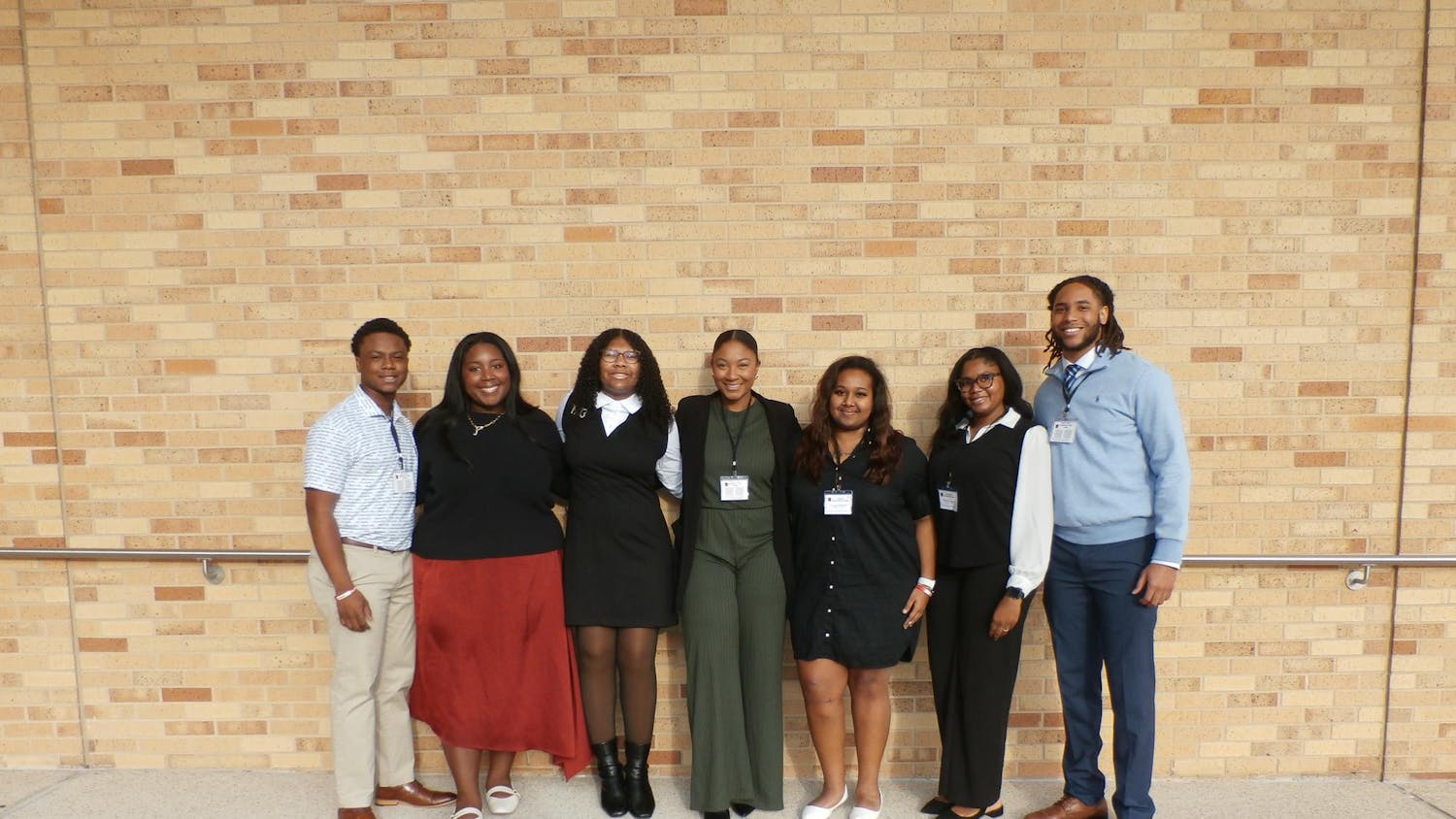Each year, Auburn students work with a community in Macon County as part of a course in the college of liberal arts. For the past two years, students have partnered with the town of Shorter, Alabama, on different projects with economic and cultural impact.
The class, officially titled Practicum in Liberal Arts, is a part of the Appalachian Teaching Project, which is offered by the Appalachian Regional Commission. Auburn University is the only school in Alabama that is part of the commission. Along with 15 other schools, the project helps a community with a project each semester.
The class is currently helping research local historical events and topics in Shorter, and students in the class are helping to plan an interpretive visitor center.
“Students have worked to research five historical topics chosen by the Shorter, Alabama, community,” said Mark Wilson, director of the Caroline Marshall Draughon Center for the Arts and Humanities. “These topics include: the Creek Indian Wars that took place nearby, a fort which was used as an outpost for the U.S. government, the first Rosenwald school, the Prairie Farms Resettlement Project and the Old Federal Road.”
The fort was where Tennessee’s first governor, John Sevier, died. His body was later moved to Knoxville, Tennessee, in the late 19th century. The school was built as part of the Rosenwald Schools Project, funded in part by Julius Rosenwald, which established schools in the South to create educational opportunities for Black residents in this area.
Wilson said the Prairie Farms Resettlement Project was a project held nearby for the U.S. government during the Great Depression. It was a planned community focused on fostering agricultural and economic development in Macon County during this time — it became home to 34 Black families at that point in history.
The Old Federal Road went from Washington, D.C. to New Orleans, and one section went through Shorter. The stretch through Shorter is the only surviving piece of the road that can still be driven on.
“I come up with ideas that I want to see in the community, and I brainstorm with Dr. Wilson to see how we can make them possible,” said Dennis Powell, town historian for Shorter, Alabama, and assistant community developer. “I pretty much am the director of the project from Macon County’s side.”
Powell said he had that idea and he ran it by Dr. Wilson, who he credits with helping make his idea a reality.
Wilson said the class is also looking up things that can be sold in a welcome center, as well as researching historical information about the town. The town is developing a community center that is both an interpretive and a learning center. Powell said the center will be used to exhibit historical events in Shorter, and students will be able to get tutoring after school at the center too.
“Students have been doing this research so that Shorter, Alabama, can use this information for the interpretive center and for new lesson plans for the fourth grade at the local elementary school,” Wilson said. “They have researched other interpretive centers in the Appalachian project, so the students will be able to offer up advice and suggestions for the project in Macon County.”
The town of Shorter was connected to Auburn through the Economic Development Authority. The students who work on this project are usually upperclassmen and liberal arts majors, although not exclusively. The class usually takes a trip to Washington, D.C. to participate in a conference, but this year the conference was held virtually.
Students in the class are also making lesson plans for the local school that they will deliver after this semester to the teachers there.
“The projects we work on come from the ongoing conversations about what the community is trying to achieve,” Wilson said. “We have had an ongoing relationship with Macon County, which gives students a chance to see beyond Auburn and connect with people they may not get to meet otherwise.”
Students are researching by talking with people in the community via Zoom about topics being researched. The students had Zoom calls with members of the community to discuss a novel set in Macon County written in 1935.
Last year, Auburn University teamed up with Shorter to do research on a Black cemetery. The headstones were documented, and research was performed on who was buried in the cemetery. The cemetery was also documented on the state’s register of historic cemeteries after this research was done.
“Growing up in Shorter, we never had our own public library,” Powell said. “Shorter is a very rural town, so we’ve never had a place of learning or tutoring, and I always had envisioned how great it would be to have a place like this. I wanted a place where people could learn our history, and kids could have that reinforcement in education.”
“It has been a real blessing to work with Auburn and Dr. Wilson,” Powell said. “It is amazing how much Auburn resembles Shorter in the family-like community that the University has even though it is not a small town.”
Do you like this story? The Plainsman doesn't accept money from tuition or student fees, and we don't charge a subscription fee. But you can donate to support The Plainsman.





